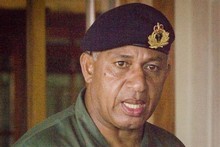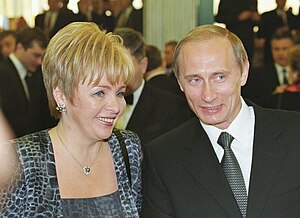A secret fact-finding mission to
Fiji has found citizens have no
legal way of
challenging any of
the Government's decisions, and the
rule of law and
independence of the judiciary has all but vanished.
A return to the rule of law is hamstrung by the benefits members of the
ruling regime enjoy, and by state-sanctioned intimidation of dissenters.
In November members of the Law Society of England and Wales visited Fiji on
an undercover mission and interviewed past and present lawyers, judges,
diplomats and people in non-government organisations.
Their report Fiji: The Rule of Law Lost found a system of governing that was
not "transparent, certain, predictable, accountable or democratic".
Foreign Minister Murray McCully said the report was "not very encouraging"
but pointed to steps Fiji was taking towards holding elections.
These included a commitment to a public consultation process and a voter
registration programme.
"This is a pivotal point in time," he said. "The acid test in the eyes of the
international community would be what steps take place now, both in terms of
freedom of assembly and media freedom, but also in terms of the public
consultation process and whether it will engage all stakeholders.
Mr McCully said the jury was out and he wanted to keep an open mind.
Fiji has been under military rule since 2006, when Frank Bainimarama seized
power. He has promised elections in 2014.
The report found that judges and prosecutors had been fired without reason,
the state had censored the media and the regime abused its power to intimidate
its critics.
"The judges dismissed in April 2009 were given no reasons, no notice and no
compensation for loss of office," the report said. "It is apparent that their
sin was to comply with their oath of office and to act independently rather than
any misconduct. It is difficult to conceive of a more obvious attack on judicial
independence."
Many of the state's prosecutors were also replaced with lawyers from Sri
Lanka on short-term contracts, the report said.
The report called all national law societies and bars to lobby governments to
press for measures to be taken by the Fiji Government to ensure a return to the
rule of law.
Labour's foreign affairs spokesman Phil Goff said the report was damning, but
he did not think harsher sanctions on Fiji were the answer.
Economic sanctions hurt ordinary people without necessarily having the
desired impact on the regime.
INTIMIDATION
* Dorsami Naidu, president of the Fiji Law Society and vocal
critic of the Government, was detained by police for 24 hours after protesting
peacefully outside a High Court building.
* Hemendra Nagin,
a lawyer who led a petition against the forcible removal of the Chief Justice in
2007, was fined $15,000 for professional misconduct.
* Human
rights lawyer Imrana Jalal was charged under a decree that did not come into
force until two months after she was charged. She was eventually acquitted, but
lives in exile.
* Graffiti artists have been charged with
sedition.






U.S. prosecutors have filed papers seeking the extradition of Kim Dotcom, founder of MegaUpload and three colleagues, who are charged in the U.S. with allegedly running a criminal enterprise responsible for online piracy of numerous types of copyrighted works.
Kim Dotcom: The extradition papers were received Friday at the North Shore District Court in Auckland, New Zealand, a spokeswoman for the country's Ministry of Justice said Monday. The court is not releasing the papers at this time.
On Wednesday, the High Court of New Zealand, Auckland Registry decided that Dotcom could stay free on bail, after government prosecutors acting on behalf of U.S. authorities appealed a Feb. 22 decision of the District Court to grant him bail.
The judge said that he understands that the extradition hearing will not take place until August, and observed that for Dotcom "to be incarcerated for another six months awaiting the extradition hearing, the risk of flight has to be a real one". The electronic monitoring of Dotcom which was one of his many bail conditions reduced the risk of flight, he said. "It essentially puts a perimeter around Mr. Dotcom's home and if he breaches the perimeter then the authorities will know about it very shortly," he added.
The judge also accepted a submission by the counsel for Dotcom that remand in custody at this point would adversely affect Dotcom's ability to properly prepare for the extradition hearing and instruct counsel.
The bail conditions require Dotcom to mostly stay at his rented mansion outside of Auckland except for medical emergencies, wear an electronic monitoring bracelet, and not use the Internet. His wife, who is pregnant with twins, and their three children also stay at the mansion.
Dotcom, who ran the MegaUpload file-sharing website until it was shut down, was denied bail shortly after he was arrested on January 20. The decision was upheld on February 3 after he appealed. Dotcom then filed a second bail application based on new factual circumstances and was freed on February 22.
Dotcom and colleagues, and two companies including MegaUpload, were indicted by a grand jury in the Eastern District of Virginia on January 5, and charged with engaging in a racketeering conspiracy, conspiring to commit copyright infringement and money laundering, and two substantive counts of criminal copyright infringement, according to the U.S. Department of Justice.
Dotcom and colleagues Finn Batato, Mathias Ortmann and Bram van der Kolk were arrested in Auckland by New Zealand authorities, who executed provisional arrest warrants requested by the U.S.
The background on Kim Dotcom: An internet provider who is a German national and NZ resident. Is wanted to answer charges in the US. Was the centre of a massive police operation in NZ some weeks ago, during which 70 police, including the NZ Armed Offenders Squad and a helicopter, invaded a property that included a NZ$30 million mansion.
This police action was believed to have been led by the FBI. Mr Dotcom was arrested and most of his assets confiscated. The NZ public believed the raid was some sort of anti-terrorist operation, but the facts were slowly released through the news media. He is s now on electronic bail on an adjoining property.
http://www.wired.com/threatlevel/2012/03/dotcom-extradition/
http://www.3news.co.nz/Kim-Dotcoms-first-TV-interview-Im-no-piracy-king/tabid/817/articleID/244830/Default.aspx